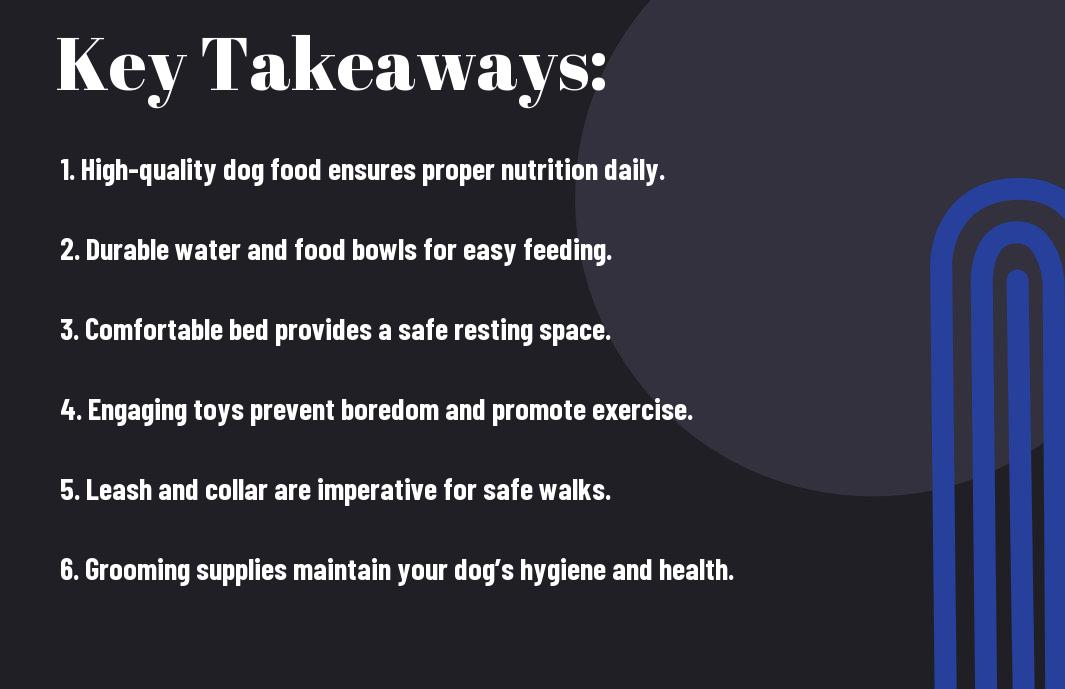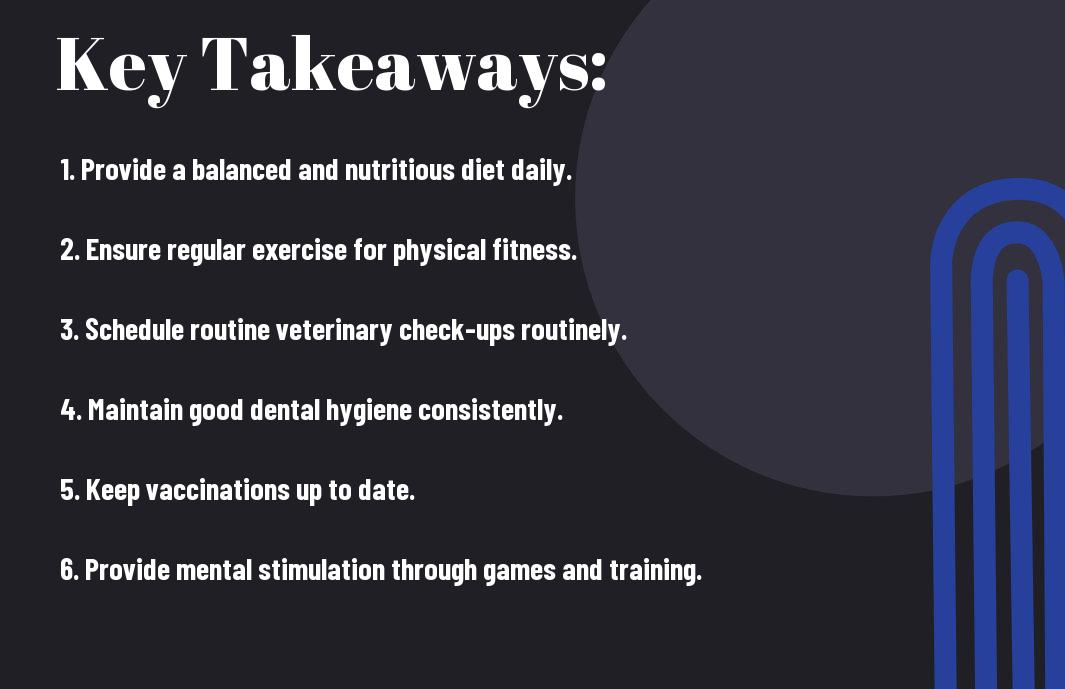Most importantly, when it comes to selecting the perfect horse, you need to consider various factors to ensure a successful match. Your decision should be based on your experience level, intended use for the horse, and budget constraints. This buyer’s guide will outline the most crucial aspects to keep in mind when choosing the right horse to meet your needs and preferences.

Understanding Your Needs
The first step in choosing the right horse is understanding your own needs and preferences. You want a horse that will match your riding style, experience, and budget. By identifying these key factors, you can ensure that you find a horse that is the perfect fit for you.
Identifying Your Riding Style and Experience
For identifying your riding style and experience, think about the type of riding you enjoy or plan to pursue. Are you a beginner looking for a calm and well-trained horse? Or are you an experienced rider interested in a more spirited and challenging mount? Consider your comfort level and experience with different temperaments and breeds to find a horse that will suit your needs.
Determining Your Budget and Resources
Even though your heart may be set on a certain type of horse, it is crucial to determine your budget and resources before making a purchase. Consider not only the initial cost of buying the horse but also the ongoing expenses such as boarding, feed, veterinary care, and training. This will help you avoid financial strain and ensure that you can provide the necessary care for your new equine companion.
This step is crucial as it will help you set realistic expectations and narrow down your search to horses that are financially feasible for you. Note, owning a horse is a long-term commitment, and being financially prepared is key to providing the best care for your new companion.
Factors to Consider When Choosing a Horse
If you are in the market for a horse, there are several key factors to consider before making your decision.
- Age and Maturity: When choosing a horse, it’s imperative to take into account their age and maturity.
Little foals may be adorable, but they require significant time and training before they are ready for riding. On the other hand, older horses may have more experience but could also come with health or behavioral issues. Recognizing the right level of maturity for your riding goals is crucial in finding a suitable horse.
Age and Maturity
Little foals may be adorable, but they require significant time and training before they are ready for riding. On the other hand, older horses may have more experience but could also come with health or behavioral issues. Recognizing the right level of maturity for your riding goals is crucial in finding a suitable horse.
Breed and Temperament
Factors such as breed and temperament play a significant role in the compatibility between you and your horse. Some breeds are known for their athleticism and performance abilities, while others are more suited for leisurely trail rides. Temperament is also crucial; you want a horse that matches your personality and riding style.
To ensure a successful partnership, consider a horse’s breed characteristics and temperament traits that align with your riding goals and experience level.
Size and Conformation
Little details like size and conformation can greatly impact your riding experience. A horse that is too small or too large for you can lead to discomfort and difficulty in communication. Understanding the importance of finding a horse with the right size and conformation for your body and riding discipline is imperative.
Recognizing these factors will help you choose a horse that fits your needs and abilities, leading to a successful and enjoyable partnership.
Tips for Evaluating a Horse’s Health
Despite the excitement of finding a potential new equine partner, it is crucial to thoroughly evaluate the health of the horse you are considering. Ensuring the well-being of the horse is necessary for both its long-term health and your riding experience. Here are some key tips to help you assess the overall health of a horse before making your purchase:
- Checking for Soundness and Athletic Ability – Despite the excitement of finding a potential new equine partner, it is crucial to evaluate a horse’s soundness and athletic ability. Observing the horse moving in various gaits can give you insight into any potential lameness issues or limitations in its athletic ability.
- Identifying Potential Health Issues – While evaluating a horse, it is important to be on the lookout for signs of potential health issues. Pay attention to the horse’s body condition, coat quality, and overall demeanor as these can be indicators of underlying health problems. Additionally, check for any signs of respiratory issues, such as coughing or nasal discharge, which could signal health concerns.
Checking for Soundness and Athletic Ability
While evaluating a horse, pay close attention to how it moves during exercise. A horse that moves freely and without any signs of discomfort or stiffness is more likely to have good soundness and athletic ability. Watch for any irregularities in its gait or any favoring of certain limbs, as these could indicate underlying health issues that may affect its performance.
Identifying Potential Health Issues
Athletic and soundness issues are not the only factors to consider when evaluating a horse’s health. You should also be on the lookout for potential health issues that could affect the horse’s well-being and performance. Issues such as poor body condition, dull coat, abnormal vital signs, or signs of discomfort can all be red flags signaling health problems.
Working with a Veterinarian
Veterinarian involvement is crucial when evaluating a horse’s health. A veterinarian can perform a thorough health check, including a physical exam, blood work, and other diagnostic tests to ensure the horse is in good health. Veterinarians can also provide valuable insights into any existing health issues and offer guidance on health maintenance and care moving forward.
Understanding the importance of a veterinarian‘s expertise in assessing a horse’s health is crucial for making an informed decision when purchasing a horse. Their professional evaluation can help you make the best choice for your prospective equine partner’s well-being and your ridding experience.

Assessing a Horse’s Training and Temperament
Once again, evaluating a horse’s training and temperament is crucial when choosing the right horse for you. The way a horse behaves and responds to commands will impact your riding experience and the relationship you build with the animal.
Evaluating Obedience and Manners
Manners are key indicators of a horse’s training and temperament. When interacting with a horse, pay attention to how it behaves on the ground – does it stand calmly, lead without pulling, and respond promptly to cues? A well-mannered horse will make your riding sessions more enjoyable and safer.
Understanding a Horse’s Personality and Attitude
Understanding a horse’s personality and attitude is necessary for a successful partnership. Some horses may be more spirited and energetic, requiring a confident rider, while others may be more laid-back and easy-going. Consider your own riding style and experience level when evaluating a horse’s personality to ensure compatibility.
Temperament plays a significant role in how a horse will respond to different situations and stimuli. A horse with a good temperament will remain calm and focused, making it easier for you to communicate effectively during rides. On the other hand, a horse with a difficult temperament can be unpredictable and challenging to handle, posing potential risks.
Testing a Horse’s Rideability
Assessing a horse’s rideability involves testing how the horse moves under saddle and responds to your aids. Pay attention to how the horse walks, trots, and canters, as well as how it transitions between gaits and adjusts its speed. A horse that is responsive and willing to work with you can make your riding experience more enjoyable and rewarding.
Horses with good rideability will make it easier for you to progress in your training and develop your riding skills. Look for a horse that is comfortable to ride and shows a willingness to listen and learn from you, as this will contribute to a harmonious partnership and enjoyable riding experiences.

How to Research and Inspect a Horse’s History
To ensure you make an informed decision when buying a horse, it’s important to thoroughly research and inspect the horse’s history. This step is crucial in understanding the horse’s health, behavior, and training background. Here are some key aspects to consider:
Reviewing Veterinary Records and Documents
Horses can’t tell you their medical history, so it’s vital to review all available veterinary records and documents. These can give you valuable insights into any past injuries, illnesses, medications, or surgeries the horse has undergone. It’s important to pay attention to any recurring issues or red flags that may affect the horse’s future performance and well-being.
Contacting Previous Owners and Trainers
Clearly, reaching out to the horse’s previous owners and trainers can provide you with valuable information about the horse’s temperament, behavior, training, and any past issues. Contacting them allows you to gain insight into how the horse has been handled in the past and how it may behave in the future. Ask specific questions about the horse’s training regimen, any vices or quirks, and the reason for selling the horse.
A candid conversation with previous owners and trainers can give you a better understanding of the horse’s history and help you determine if it’s the right fit for you and your needs. Their honesty and transparency can be key in making an informed decision when purchasing a horse.
Conducting a Pre-Purchase Inspection
Clearly, before finalizing the purchase, it’s crucial to conduct a pre-purchase inspection of the horse. Plus, hiring a qualified veterinarian to perform a thorough examination can help uncover any underlying issues or potential problems that may not be apparent during a regular viewing. The vet will evaluate the horse’s overall health, soundness, and suitability for the intended use. Strongly consider having X-rays taken to assess the horse’s bone structure and joints, especially if you plan on using the horse for strenuous activities.

Making an Informed Decision
Weighing the Pros and Cons of Each Horse
Clearly, when deciding on the right horse for you, it’s important to weigh the pros and cons of each option. To help you make a more informed decision, consider creating a table outlining the positive and negative aspects of each horse you are interested in.
| Pros | Cons |
| Lovely temperament | Requires experienced rider |
| Well-trained in dressage | Health issues |
| Good with children | High maintenance costs |
| Excellent show record | Previous injuries |
Considering Additional Costs and Responsibilities
For a full picture, you must consider not just the purchase price, but the ongoing costs and responsibilities that come with owning a horse. This includes expenses like boarding, feed, veterinary care, farrier services, and equipment. Additionally, you’ll need to dedicate time for daily care, grooming, exercise, and training.
Informed decisions about horse ownership involve understanding the financial and time commitments required. It’s crucial to budget appropriately and be prepared for the level of care and attention horses need on a daily basis.
Trusting Your Instincts and Making a Decision
For trusting your instincts when choosing a horse, it’s important to consider how you feel when interacting with the horse. Sometimes, a particular connection or gut feeling can guide you towards the right choice. While it’s important to weigh the practical aspects, don’t underestimate the power of your intuition in making a decision that feels right for you.
Cons: Recall, even if a horse looks perfect on paper, trust your instincts and ensure that you feel comfortable and confident with your choice. Your gut feeling can often lead you to the best match for you and your equestrian aspirations.
Summing up
The process of choosing the right horse can be overwhelming, but by following the guidelines outlined in this buyer’s guide, you can make an informed decision that best suits your needs and preferences. Remember to assess your riding experience, consider the horse’s temperament, confirm its health history, and evaluate its suitability for your intended activities. By taking your time, asking the right questions, and seeking professional advice when needed, you can find the perfect equine partner to accompany you on your equestrian journey.
FAQ
Q: What are some important factors to consider when choosing the right horse?
A: When choosing the right horse, consider your riding experience, the horse’s temperament, size, and age, as well as your riding goals and budget.
Q: How can I assess a horse’s temperament before buying?
A: To assess a horse’s temperament, spend time interacting with the horse, observe its behavior around other horses and humans, and ask the current owner or handler about its temperament and past experiences.
Q: What size horse should I choose based on my riding experience?
A: For beginners, a smaller horse or pony may be easier to handle and control. Experienced riders may prefer larger horses for more advanced riding activities.
Q: What age range is ideal when choosing a horse?
A: The ideal age of a horse depends on your riding goals. Younger horses may have more energy and require more training, while older horses may be more experienced and suitable for beginner riders.
How can I set a budget for buying a horse?
A: When setting a budget for buying a horse, consider not only the purchase price but also ongoing expenses such as boarding, feed, veterinary care, and tack. Research the market to get an idea of current prices for horses that meet your criteria.










